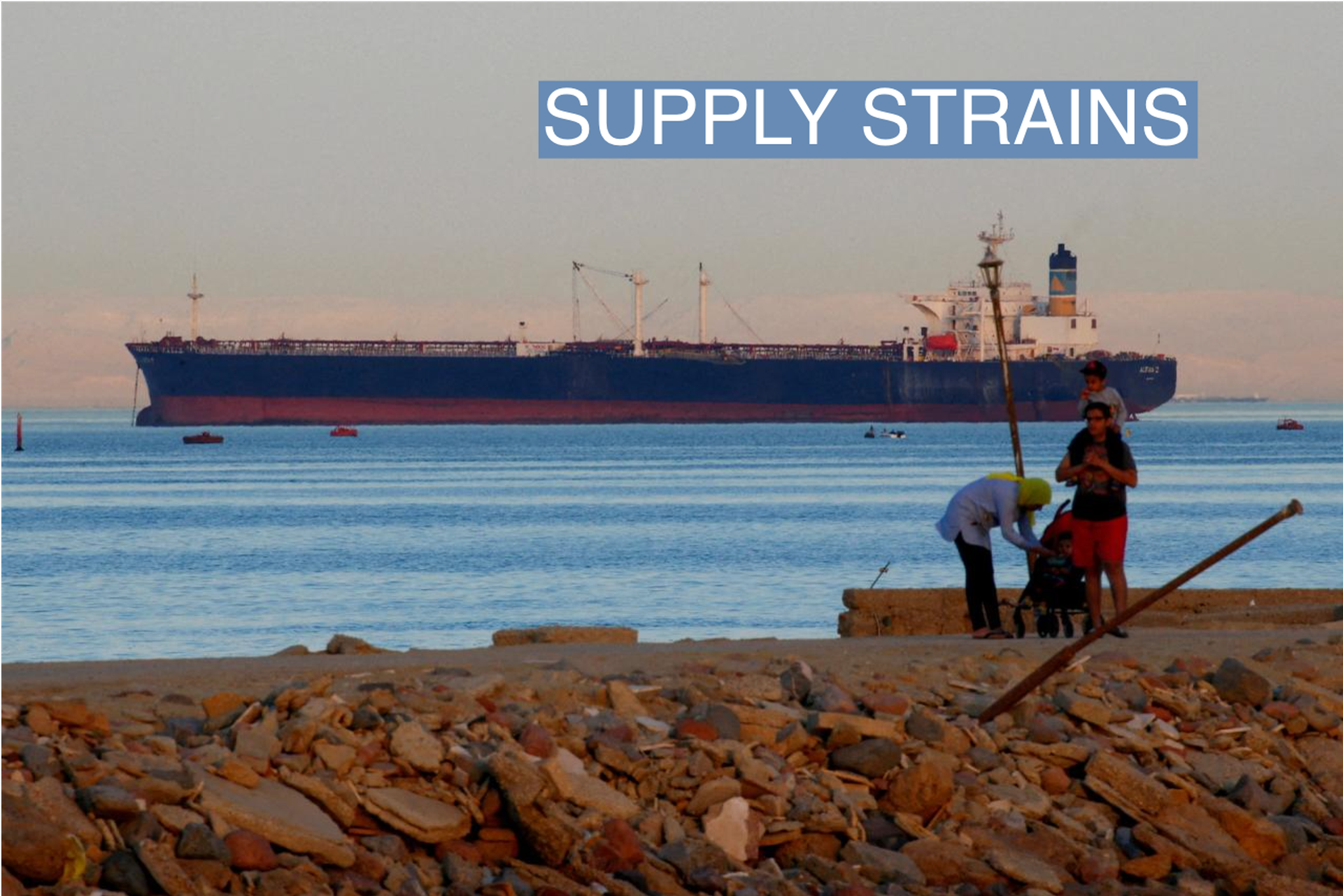The News
President Joe Biden admitted that the U.S.-led strikes on Yemen’s Houthi rebels — who for weeks have targeted vessels in the Red Sea in solidarity with Palestinians in the Gaza Strip — have done little to actually deter further attacks.
When asked by reporters if the strikes were working, the president said, “Are they stopping the Houthis? No,” adding, “Are they gonna continue? Yes.″
The ongoing attacks have upended global shipping routes, with several companies announcing they would no longer cross the Red Sea under the threat of the Houthis. Instead, ships are taking an expensive, circuitous route around Africa.
SIGNALS
Red Sea crisis starting to impact food supply chains
The crisis unfolding in the Red Sea has threatened global supply chains, and shipments of produce are beginning to slow down, Bloomberg reported. Longer than average shipping times risk leading to spoiled products, and exporters have already started to hike prices to accommodate for the risk to their bottom line. “If disruptions worsen, they could stall the slump in food-commodity costs that had started to filter through to cheaper grocery bills,” Bloomberg noted. Farmers can’t delay their harvest period, one Indian grape grower told the outlet, and have to sell even if they must slash their costs to cover higher-than-usual shipping fees. “It will be our losses if prices crash,” the farmer said.
China calls for calm as its flagging economy is disrupted further
Beijing has called for an easing of tensions in the region as its economy has been hit by the ongoing disruptions. The crisis has led to higher-than-expected shipping costs and losses for Chinese companies, the Financial Times noted. One expert explained that while Chinese vessels had not been directly affected by the security issues, there has been major fallout for the country: “Although shipments from countries like China might be safe, the freight costs have increased … it’s a very bad thing for China,” said Yin Gang, an expert in Chinese Middle East affairs. Beijing is unlikely to back U.S. policy in the region, however. China usually avoids military interventions, and views Washington’s moves so far as a failure.
Supply chain disruptions will strike Europe hardest, but it’s better prepared this time
While the U.S. has managed to come out of subsequent economic crises — the COVID-19 pandemic, and the war in Ukraine — relatively unscathed, Europe has been hard hit. Officials in Europe have warned that the cost of energy and goods could rise as shipping is delayed, The Wall Street Journal noted, but the crisis could be less severe than others. Businesses expect to be impacted, but are better prepared to navigate it. One CEO said: “It’s under control. Maybe the explanation is that we have a lot of experience now in this resilience or in the reaction to these crises.”

